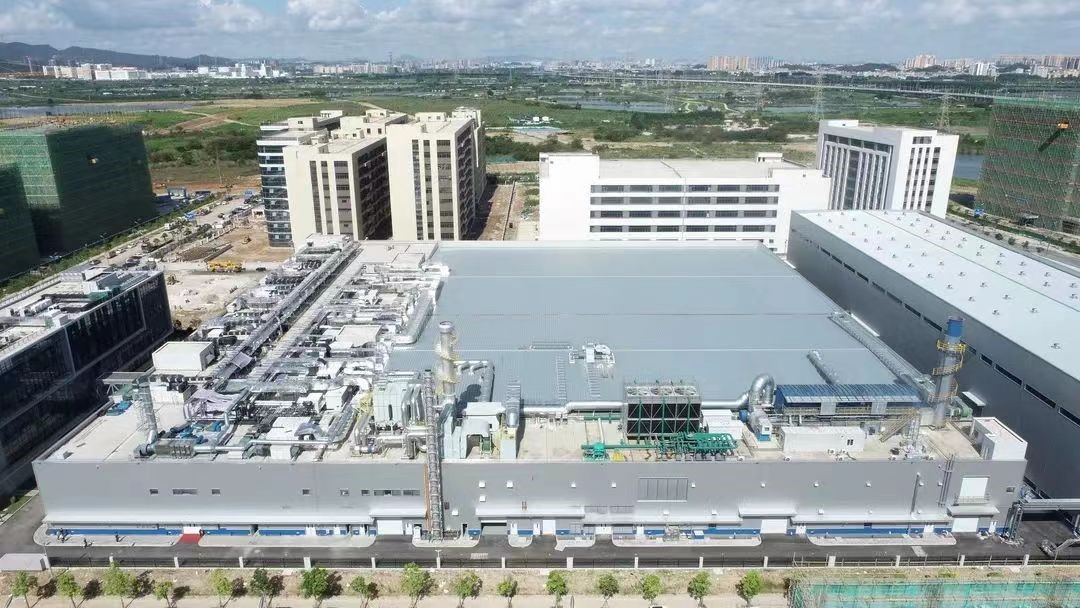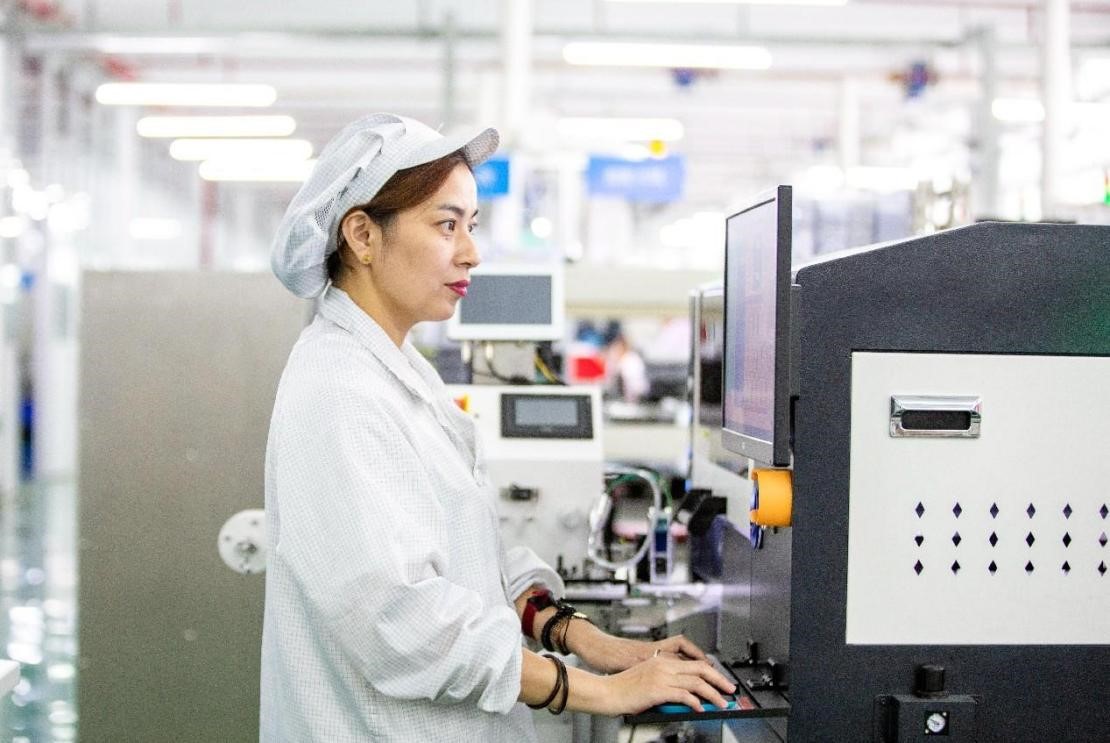China onto new level in utilization of foreign investment
As the new year begins, foreign enterprises are accelerating their development in the Chinese market.
Recently, a global flexible packaging plant built by Amcor, a global leader in the packaging industry headquartered in Switzerland, was put into operation in Huizhou, south China's Guangdong province. The factory, with an investment of 1 billion yuan ($147.42 million), is expected to generate an annual output of 800 million yuan in its first phase.

Photo shows the flexible packaging plant in Huizhou, south China's Guangdong province, owned by Amcor, a global leader in the packaging industry from Switzerland. (Photo provided by Amcor China)
In Suzhou, east China's Jiangsu province, a high-tech innovation park jointly launched by China and the Netherlands is currently under construction. A number of platforms will be built there for China-Netherlands cooperation in photoelectric technology, biomedicine and high-end auto parts industries. The park is expected to be put into use this year.
Foreign enterprises are important market entities in China. More efforts to stabilize and expand foreign investment is an important measure for China to expand high-level opening up.
China leverages the strengths of its enormous market to attract global resources and production factors. It is working to foster a market-oriented and world-class business environment governed by a sound legal framework.
A more open China will create new opportunities for the world with its own development and continue to be a hot destination of investment for foreign enterprises.
China's utilization of foreign investment has maintained stable growth in recent years despite the complicated external environment. Foreign direct investment (FDI) in the Chinese mainland, in actual use, reached 1.23 trillion yuan in 2022, a 6.3 percent steady increase from the previous year.
The structure of its foreign investment continued to optimize. Last year, FDI flow in the high-tech sector jumped by 28.3 percent, accounting for 36.1 percent of the total and 7.1 percentage points higher from 2021.
In particular, the growths stood at 56.8 percent, 35 percent and 21.3 percent in the electronic and communication equipment manufacturing, commercialization of scientific and research findings, and information service industries, respectively.

A worker produces electrical products at a manufacturing base of electrical equipment company Simon in Hai'an, east China's Jiangsu province, Sept. 14, 2022. (People's Daily Online/Zhai Huiyong)
"This indicates China's remarkable progress in industrial transformation and upgrading. The country has fostered an industrial foundation and innovation system that suit the development of global high-tech industries," said Lin Meng, director of the Modern Supply Chain Research Institute under the Chinese Academy of International Trade and Economic Cooperation.
Multinational corporations hope to grow together with Chinese enterprises and share the dividends of China's economic transformation and upgrading in such areas as frontier technological innovation, green economy transition, global cooperation on coping with climate change and digital economy, Lin added.
Investment interests from major source countries remained stable. In 2022, investment from South Korea, Germany and the UK grew significantly by 64.2 percent, 52.9 percent and 40.7 percent, respectively. Investment from the European Union, countries along the Belt and Road and ASEAN surged by 92.2 percent, 17.2 percent and 8.2 percent, respectively.
According to a survey recently conducted by the China Council for the Promotion of International Trade, which covered more than 160 foreign enterprises and foreign chambers of commerce in China, 99.4 percent of the respondents said they were more confident in China's economic development in 2023.
The respondents generally believed that China's economy is resilient and the country enjoys competitive advantages in market potential, industrial system, infrastructure and business environment.

A flying car is exhibited at the fourth Western China International Fair for Investment and Trade held in southwest China's Chongqing municipality, July 22, 2022. (People's Daily Online/Sun Kaifang)
An asset management joint venture between BNP Paribas Asset Management from France and the Agricultural Bank of China (ABC) was approved to be built in October last year. It has a registered capital of a billion yuan, of which BNP Paribas contributes 51 percent and ABC 49 percent.
As a witness and beneficiary of China's opening up in the finance sector, Alexandre Werno, head of Asia Pacific Strategic Partnerships of BNP Paribas, noted that China is the world's second-largest market of asset management and enjoys broad prospects.
The country is unswervingly expanding opening up and creating new opportunities for the world with its own development, Werno added.
Since 2022, China has implemented new versions of negative list for foreign investment, widened market access in finance and auto industries, and released the 2022 edition of Catalogue of Industries Encouraged for Foreign Investment. It has also rolled out targeted measures to attract investment in the manufacturing sector and launched 15 policy measures to promote the high-quality utilization of foreign investment.
These efforts effectively stabilized foreign enterprises' expectations of their development in China and created more opportunities for them.
This year, China will launch multiple measures to further improve the quality and quantity of the utilization of foreign investment, including further widening market access, ensuring national treatment for all foreign-invested enterprises and enhancing trade and investment facilitation.
It is believed that China's adherence to high-level opening up will bring the country's development dividends to more investors and give a more active role to foreign investment in China's economic development.
Photos
Related Stories
Copyright © 2023 People's Daily Online. All Rights Reserved.









